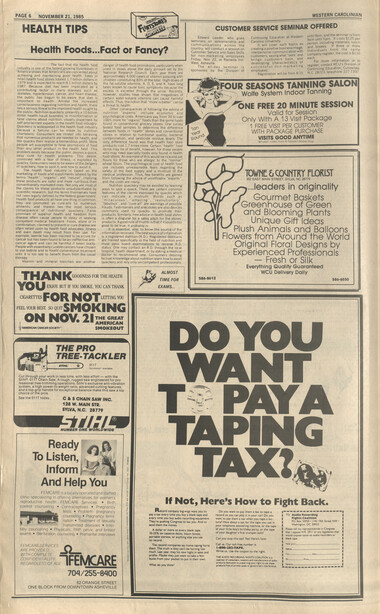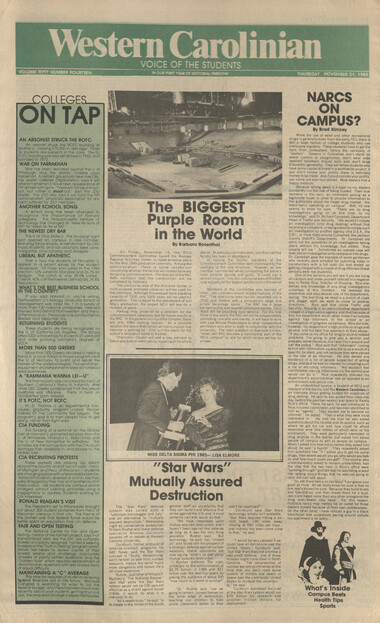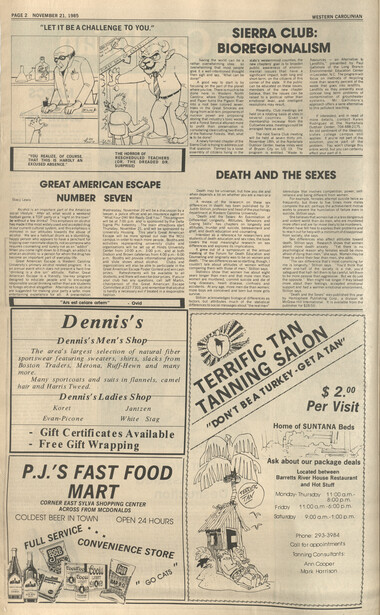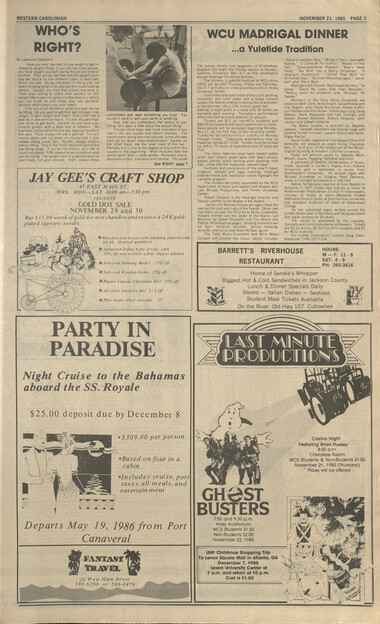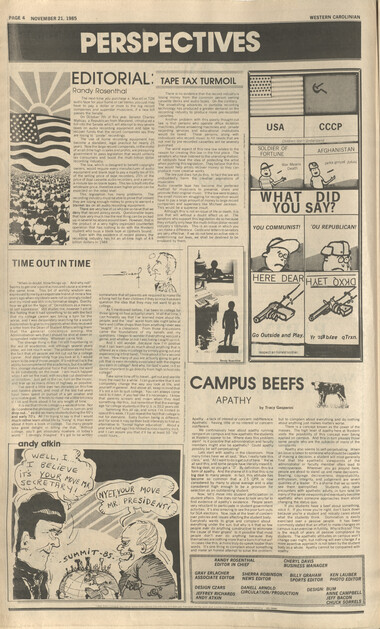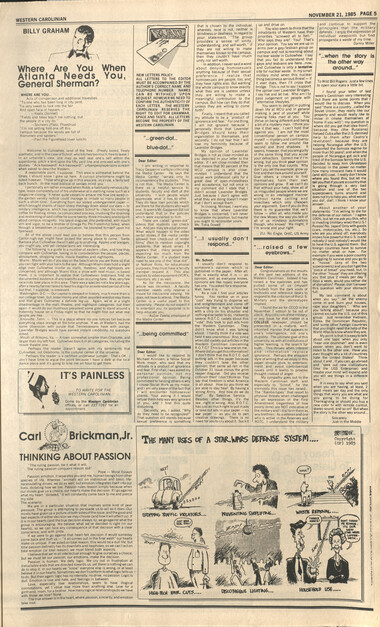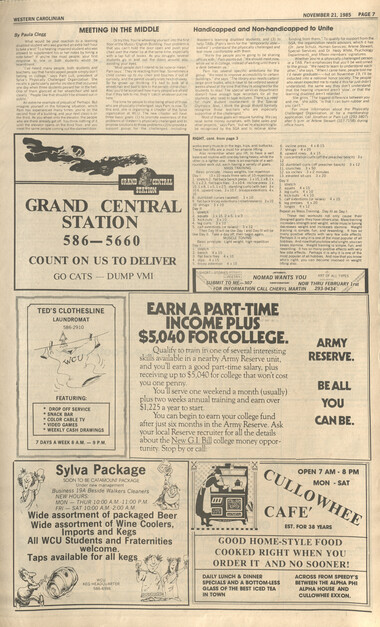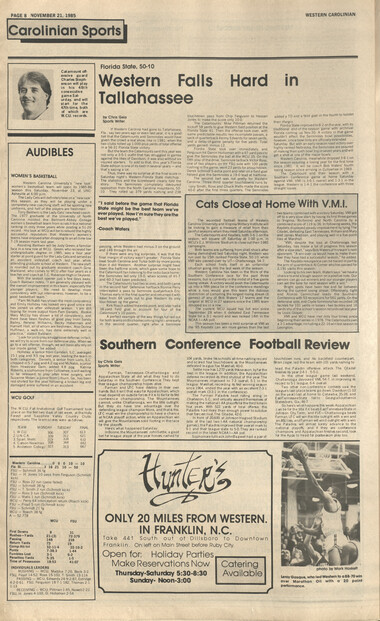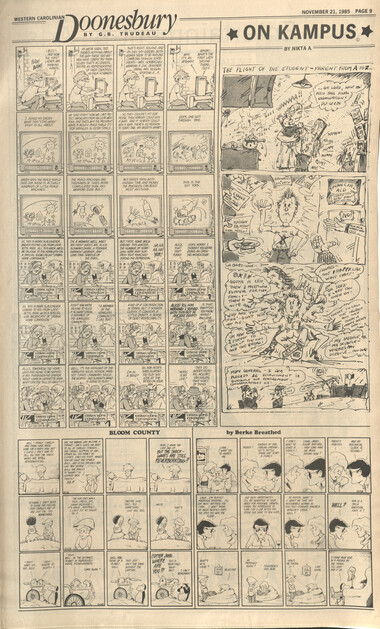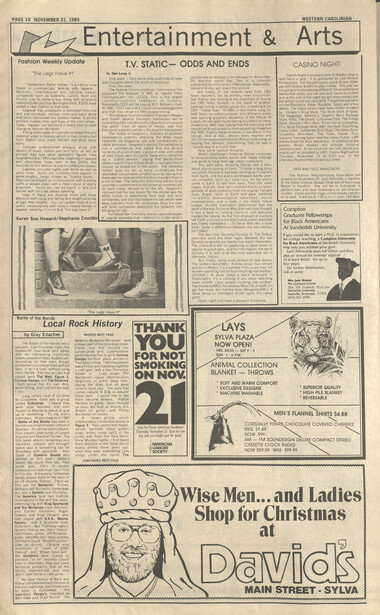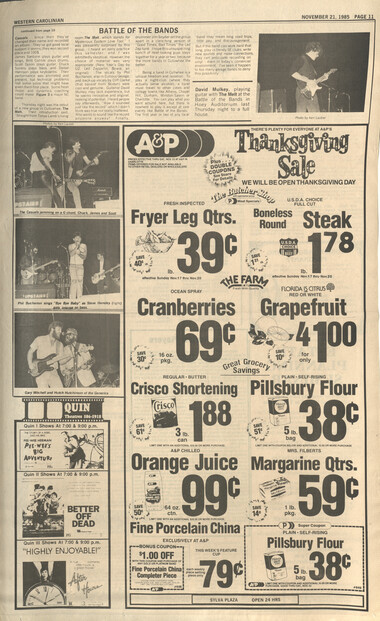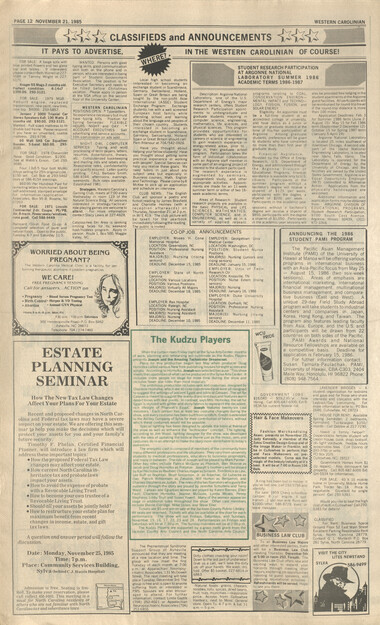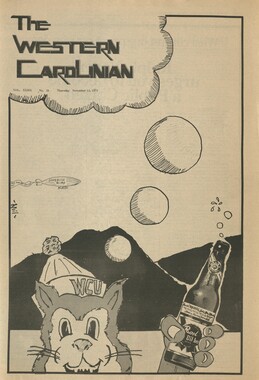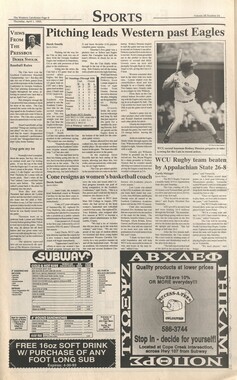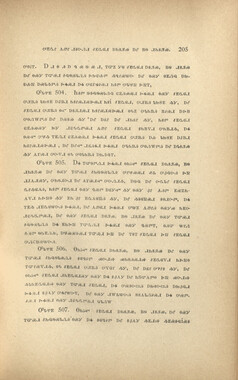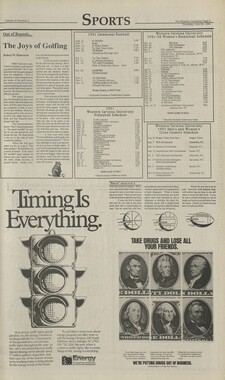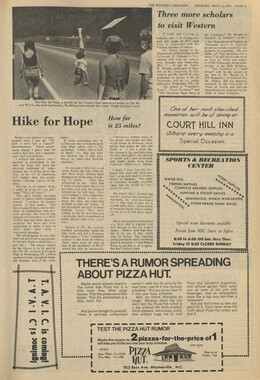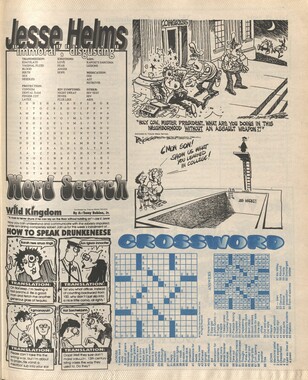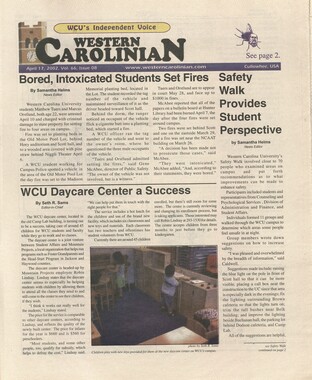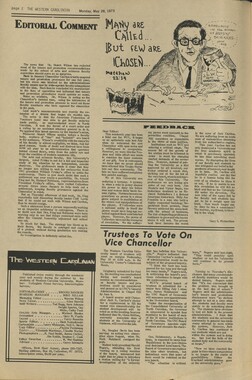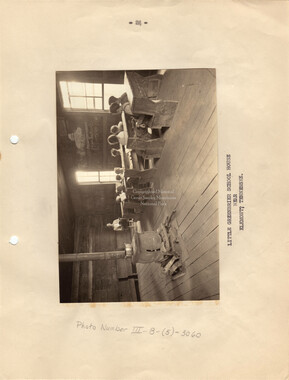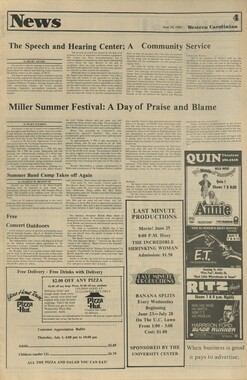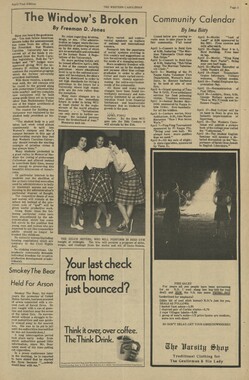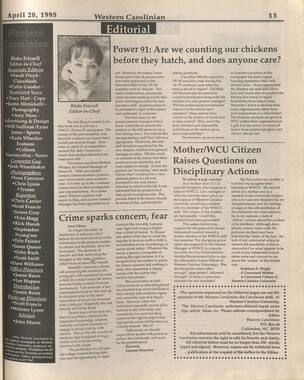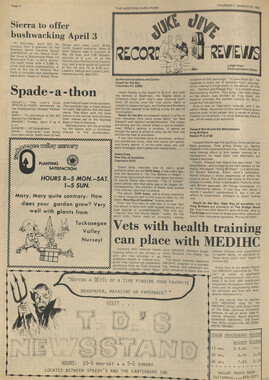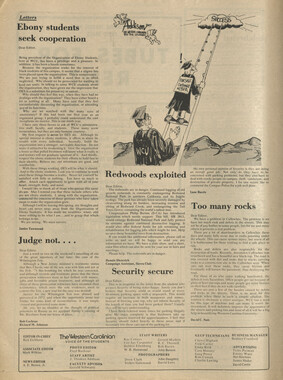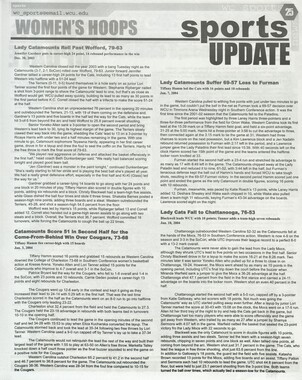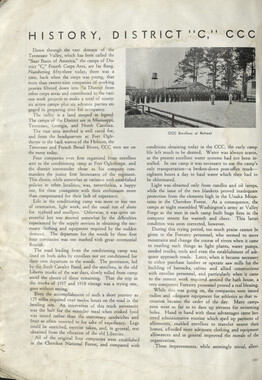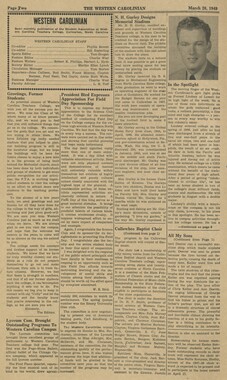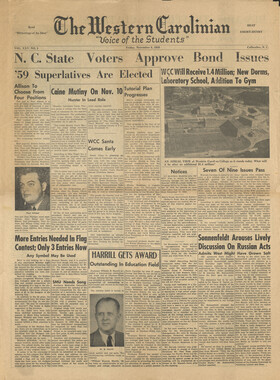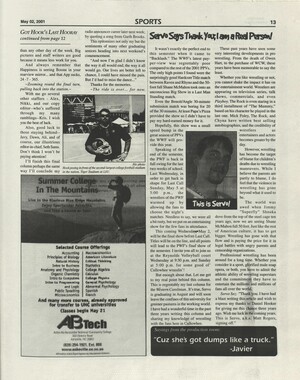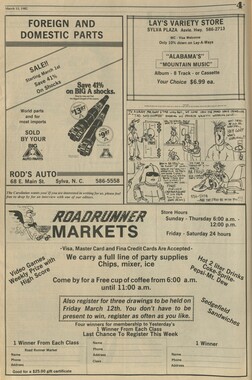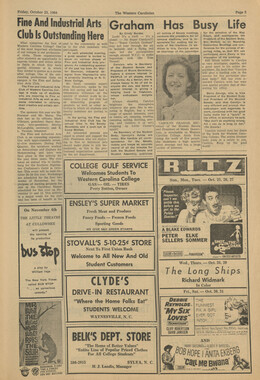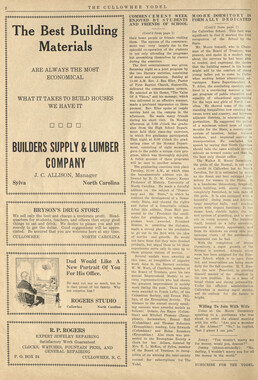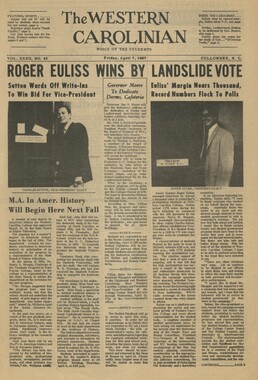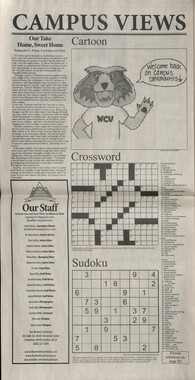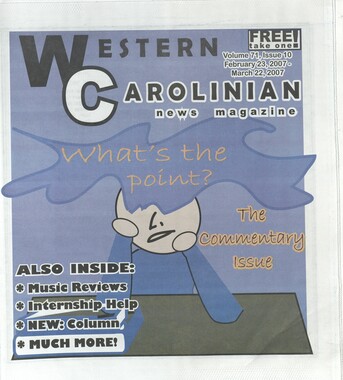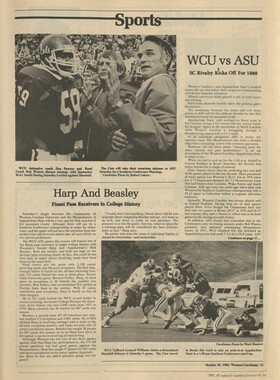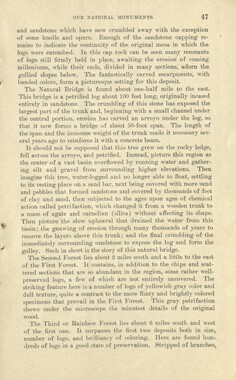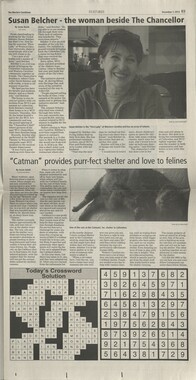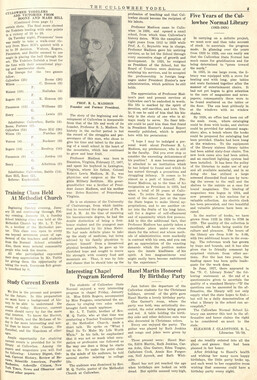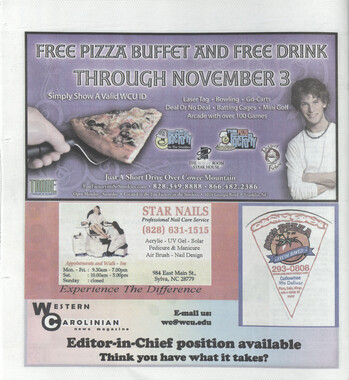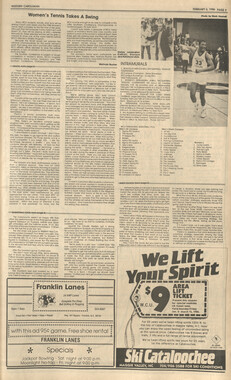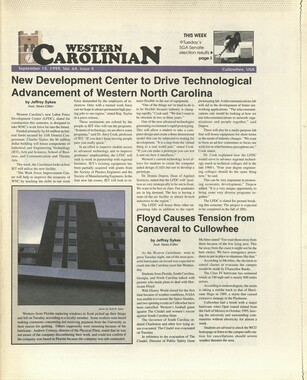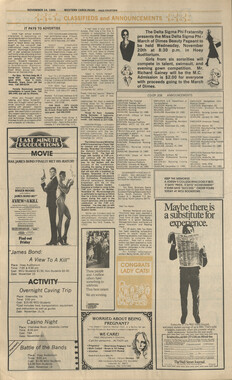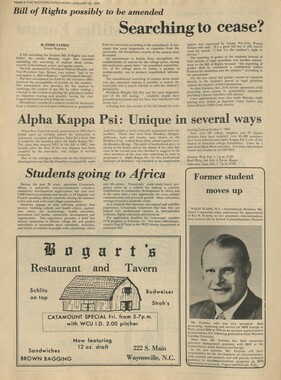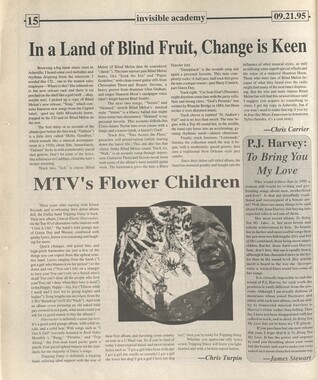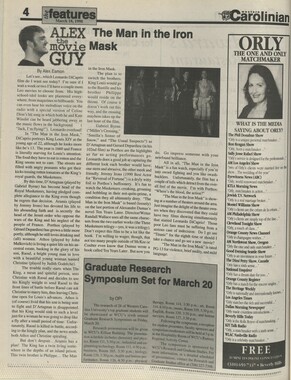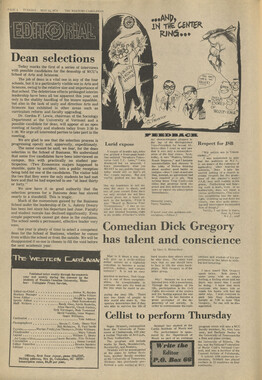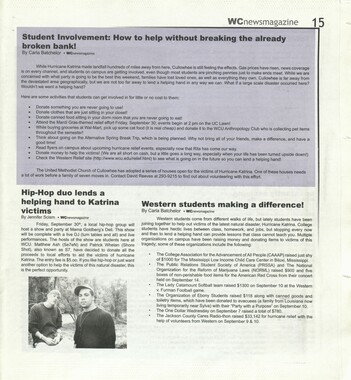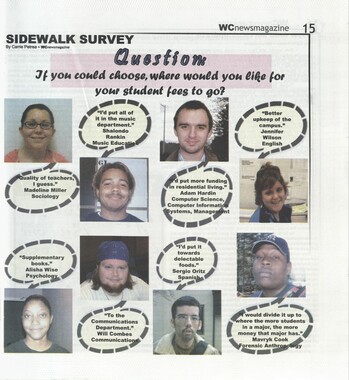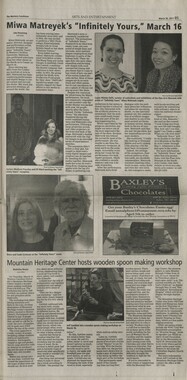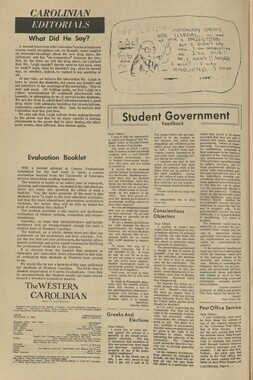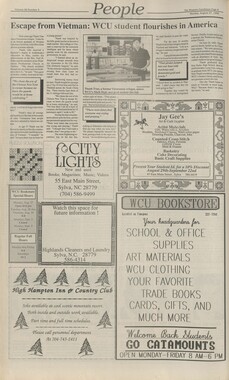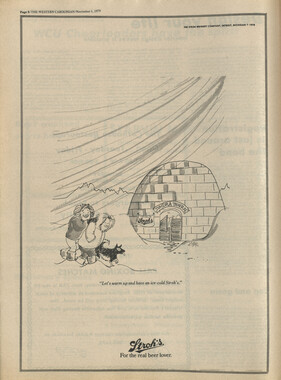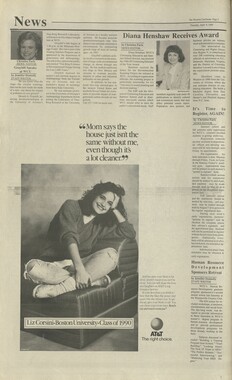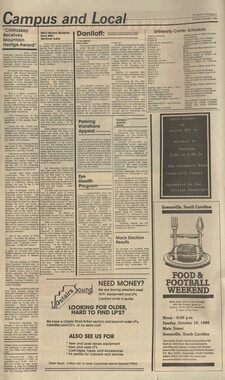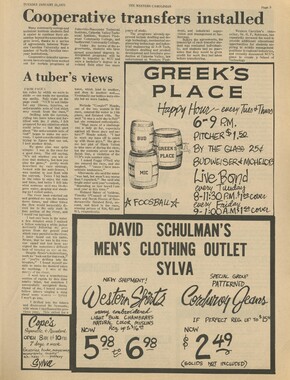Western Carolina University (21)
View all
- Canton Champion Fibre Company (2308)
- Cherokee Traditions (291)
- Civil War in Southern Appalachia (165)
- Craft Revival (1942)
- George Masa Collection (137)
- Great Smoky Mountains - A Park for America (3080)
- Highlights from Western Carolina University (422)
- Horace Kephart (973)
- Journeys Through Jackson (159)
- LGBTQIA+ Archive of Jackson County (89)
- Oral Histories of Western North Carolina (318)
- Picturing Appalachia (6617)
- Stories of Mountain Folk (413)
- Travel Western North Carolina (153)
- Western Carolina University Fine Art Museum Vitreograph Collection (129)
- Western Carolina University Herbarium (92)
- Western Carolina University: Making Memories (738)
- Western Carolina University Publications (2491)
- Western Carolina University Restricted Electronic Theses and Dissertations (146)
- Western North Carolina Regional Maps (71)
- World War II in Southern Appalachia (131)
University of North Carolina Asheville (6)
View all
- Allanstand Cottage Industries (62)
- Appalachian National Park Association (53)
- Bennett, Kelly, 1890-1974 (1463)
- Berry, Walter (76)
- Brasstown Carvers (40)
- Carver, George Washington, 1864?-1943 (26)
- Cathey, Joseph, 1803-1874 (1)
- Champion Fibre Company (233)
- Champion Paper and Fibre Company (297)
- Cherokee Indian Fair Association (16)
- Cherokee Language Program (22)
- Crowe, Amanda (40)
- Edmonston, Thomas Benton, 1842-1907 (7)
- Ensley, A. L. (Abraham Lincoln), 1865-1948 (275)
- Fromer, Irving Rhodes, 1913-1994 (70)
- George Butz (BFS 1907) (46)
- Goodrich, Frances Louisa (120)
- Grant, George Alexander, 1891-1964 (96)
- Heard, Marian Gladys (60)
- Kephart, Calvin, 1883-1969 (15)
- Kephart, Horace, 1862-1931 (313)
- Kephart, Laura, 1862-1954 (67)
- Laney, Gideon Thomas, 1889-1976 (439)
- Masa, George, 1881-1933 (61)
- McElhinney, William Julian, 1896-1953 (44)
- Niggli, Josephina, 1910-1983 (10)
- North Carolina Park Commission (105)
- Osborne, Kezia Stradley (9)
- Owens, Samuel Robert, 1918-1995 (11)
- Penland Weavers and Potters (36)
- Roberts, Vivienne (15)
- Roth, Albert, 1890-1974 (142)
- Schenck, Carl Alwin, 1868-1955 (1)
- Sherrill's Photography Studio (2565)
- Southern Highland Handicraft Guild (127)
- Southern Highlanders, Inc. (71)
- Stalcup, Jesse Bryson (46)
- Stearns, I. K. (213)
- Thompson, James Edward, 1880-1976 (226)
- United States. Indian Arts and Crafts Board (130)
- USFS (683)
- Vance, Zebulon Baird, 1830-1894 (1)
- Weaver, Zebulon, 1872-1948 (58)
- Western Carolina College (230)
- Western Carolina Teachers College (282)
- Western Carolina University (2008)
- Western Carolina University. Mountain Heritage Center (18)
- Whitman, Walt, 1819-1892 (10)
- Wilburn, Hiram Coleman, 1880-1967 (73)
- Williams, Isadora (3)
- Cain, Doreyl Ammons (0)
- Crittenden, Lorraine (0)
- Rhodes, Judy (0)
- Smith, Edward Clark (0)
- Appalachian Region, Southern (3032)
- Asheville (N.C.) (1945)
- Avery County (N.C.) (26)
- Blount County (Tenn.) (195)
- Buncombe County (N.C.) (1680)
- Cherokee County (N.C.) (283)
- Clay County (N.C.) (556)
- Graham County (N.C.) (238)
- Great Smoky Mountains National Park (N.C. and Tenn.) (535)
- Haywood County (N.C.) (3573)
- Henderson County (N.C.) (70)
- Jackson County (N.C.) (4925)
- Knox County (Tenn.) (35)
- Knoxville (Tenn.) (13)
- Lake Santeetlah (N.C.) (10)
- Macon County (N.C.) (421)
- Madison County (N.C.) (216)
- McDowell County (N.C.) (39)
- Mitchell County (N.C.) (135)
- Polk County (N.C.) (35)
- Qualla Boundary (982)
- Rutherford County (N.C.) (78)
- Swain County (N.C.) (2185)
- Transylvania County (N.C.) (270)
- Watauga County (N.C.) (12)
- Waynesville (N.C.) (86)
- Yancey County (N.C.) (72)
- Aerial Photographs (3)
- Aerial Views (60)
- Albums (books) (4)
- Articles (1)
- Artifacts (object Genre) (228)
- Bibliographies (1)
- Biography (general Genre) (2)
- Cards (information Artifacts) (38)
- Clippings (information Artifacts) (192)
- Copybooks (instructional Materials) (3)
- Crafts (art Genres) (622)
- Depictions (visual Works) (21)
- Design Drawings (1)
- Digital Moving Image Formats (2)
- Drawings (visual Works) (185)
- Envelopes (101)
- Exhibitions (events) (1)
- Facsimiles (reproductions) (1)
- Fiction (general Genre) (4)
- Financial Records (12)
- Fliers (printed Matter) (67)
- Glass Plate Negatives (381)
- Guidebooks (2)
- Internegatives (10)
- Interviews (823)
- Land Surveys (102)
- Letters (correspondence) (1045)
- Manuscripts (documents) (618)
- Maps (documents) (177)
- Memorandums (25)
- Minutes (administrative Records) (59)
- Negatives (photographs) (6090)
- Newsletters (1290)
- Newspapers (2)
- Notebooks (8)
- Occupation Currency (1)
- Paintings (visual Works) (1)
- Pen And Ink Drawings (1)
- Periodicals (194)
- Personal Narratives (10)
- Photographs (12977)
- Plans (maps) (1)
- Poetry (6)
- Portraits (4568)
- Postcards (329)
- Programs (documents) (181)
- Publications (documents) (2444)
- Questionnaires (65)
- Relief Prints (26)
- Sayings (literary Genre) (1)
- Scrapbooks (282)
- Sheet Music (2)
- Slides (photographs) (402)
- Songs (musical Compositions) (2)
- Sound Recordings (802)
- Specimens (92)
- Speeches (documents) (18)
- Tintypes (photographs) (8)
- Transcripts (329)
- Text Messages (0)
- A.L. Ensley Collection (275)
- Appalachian Industrial School Records (7)
- Appalachian National Park Association Records (336)
- Axley-Meroney Collection (2)
- Bayard Wootten Photograph Collection (20)
- Bethel Rural Community Organization Collection (7)
- Blumer Collection (5)
- C.W. Slagle Collection (20)
- Canton Area Historical Museum (2110)
- Carlos C. Campbell Collection (462)
- Cataloochee History Project (64)
- Cherokee Studies Collection (4)
- Daisy Dame Photograph Album (5)
- Daniel Boone VI Collection (1)
- Doris Ulmann Photograph Collection (112)
- Elizabeth H. Lasley Collection (1)
- Elizabeth Woolworth Szold Fleharty Collection (4)
- Frank Fry Collection (95)
- George Masa Collection (173)
- Gideon Laney Collection (452)
- Hazel Scarborough Collection (2)
- Hiram C. Wilburn Papers (28)
- Historic Photographs Collection (236)
- Horace Kephart Collection (861)
- Humbard Collection (33)
- Hunter and Weaver Families Collection (1)
- I. D. Blumenthal Collection (4)
- Isadora Williams Collection (4)
- Jesse Bryson Stalcup Collection (47)
- Jim Thompson Collection (224)
- John B. Battle Collection (7)
- John C. Campbell Folk School Records (80)
- John Parris Collection (6)
- Judaculla Rock project (2)
- Kelly Bennett Collection (1482)
- Love Family Papers (11)
- Major Wiley Parris Civil War Letters (3)
- Map Collection (12)
- McFee-Misemer Civil War Letters (34)
- Mountain Heritage Center Collection (4)
- Norburn - Robertson - Thomson Families Collection (44)
- Pauline Hood Collection (7)
- Pre-Guild Collection (2)
- Qualla Arts and Crafts Mutual Collection (12)
- R.A. Romanes Collection (681)
- Rosser H. Taylor Collection (1)
- Samuel Robert Owens Collection (94)
- Sara Madison Collection (144)
- Sherrill Studio Photo Collection (2558)
- Smoky Mountains Hiking Club Collection (616)
- Stories of Mountain Folk - Radio Programs (374)
- The Reporter, Western Carolina University (510)
- Venoy and Elizabeth Reed Collection (16)
- WCU Gender and Sexuality Oral History Project (36)
- WCU Mountain Heritage Center Oral Histories (25)
- WCU Oral History Collection - Mountain People, Mountain Lives (71)
- WCU Students Newspapers Collection (1923)
- Western North Carolina Tomorrow Black Oral History Project (69)
- William Williams Stringfield Collection (2)
- Zebulon Weaver Collection (109)
- African Americans (390)
- Appalachian Trail (35)
- Artisans (521)
- Cherokee art (84)
- Cherokee artists -- North Carolina (10)
- Cherokee language (21)
- Cherokee pottery (101)
- Cherokee women (208)
- Church buildings (190)
- Civilian Conservation Corps (U.S.) (111)
- College student newspapers and periodicals (2012)
- Dams (108)
- Dance (1023)
- Education (222)
- Floods (63)
- Folk music (1015)
- Forced removal, 1813-1903 (2)
- Forest conservation (220)
- Forests and forestry (1198)
- Gender nonconformity (4)
- Great Smoky Mountains National Park (N.C. and Tenn.) (181)
- Hunting (47)
- Landscape photography (25)
- Logging (122)
- Maps (83)
- Mines and mineral resources (9)
- North Carolina -- Maps (18)
- Paper industry (38)
- Postcards (255)
- Pottery (135)
- Railroad trains (72)
- Rural electrification -- North Carolina, Western (3)
- School integration -- Southern States (2)
- Segregation -- North Carolina, Western (5)
- Slavery (5)
- Sports (452)
- Storytelling (243)
- Waterfalls -- Great Smoky Mountains (N.C. and Tenn.) (66)
- Weaving -- Appalachian Region, Southern (280)
- Wood-carving -- Appalachian Region, Southern (328)
- World War, 1939-1945 (173)
Western Carolinian Volume 50 Number 14
Item
Item’s are ‘child’ level descriptions to ‘parent’ objects, (e.g. one page of a whole book).
-
-
PAGE 6 NOVEMBER 21, 1985 WESTERN CAROLINIAN HEALTH TIPS Health Foods...Fact or Fancy? CUSTOMER SERVICE SEMINAR OFFERED The fact that the health food industry is one of the fastest growing businesses in America shows that Americans are concerned about achieving and maintaining good health. Sales in retail health food stores totaled 17 billion dollars in 1979 and is expected to reach 8.1 billion dollars by 1987. Because diet has been implicated as a contributing factor in many diseases such as diabetes, hypertension, cancer, and heart disease, the public has begun to be aware that diet is important to health. Amidst the increased consciousness regarding nutrition and health, there lies a serious threat to the improved health sought by the public. Nutrition quackery, presently a 10 billion dollar health fraud business, is misinformation or false claims about nutrition, usually dispensed by self-proclaimed experts in the health food industry. Quackery is widespread in the health food industry ■ because a fortune can be made by nutrition charlatans. Consumers are misled into believing that numerous products are needed for health, and the quacks then realize a tremendous profit. More people art susceptible to false promotions of food than any other product in the health field. This problem exists because the public desires a quick, easy cure for health problems. This desire, combined with a fear of illness, is exploited by quacks. Consumers need to be aware of tnedangers of quackery, how to spot it, and how to avoid it. The health food industry is based on the marketing of foods and suppliments labeled by the terms "health", "organic", and "natural", implying these products are safer and more nutritious than conventionally marketed ones. Not only are most of the claims for these products unsubstantiated by scientific research, but the terms themselves have not been legally defined by the federal government. Health food products all have one thing in common; they are promoted as cure-alls for numerous ailments, and therein lies the most serious consequence of nutritional quackery. False promises of superior health and freedom from disease often cause people to delay in seeking competent medical treatment. Foods, alone or in combination, claimed to prevent or cure disease are often relied upon by health food advocates. Illness and even death may result from their use. For example, laetrile has been claimed to be a cure for cancer but has been found to bean ineffective anticancer agent and can be harmful if taken orally. People with essentiallycurablecancers have chosen to use laetrile and to forefit conventional treatment until it is too late to benefit them from the usual therapy. Vitamin and mineral toxicities are another danger of health food promotions, particularly when used in doses above the daily amount set by the National Research Council. Each year there are approximately 4,000 cases of vitamin poisoing with children constituting 80% of the total. High doses of the fat-soluble vitamins, A, D, E, and K, have long been known to cause toxic symptoms because the excess is excreted through the urine. Recently, however, studies have shown that megadoses of certain water-soluble vitamins can cause harmful effects. Thus, the notion that "more is better" can be a threat to health. Other consequences of following the advice of nutrition "experts" include economic and psychological costs. Americans pay from 30 to over 100% more for "organic" foods than the same foods found in conventional grocery stores. One survey tested food samples to determine the difference between foods in "health" stores and conventional stores in relation to nutritional quality, bacterial contamination, and pesticide residue levels. The only difference found was that health food store products cost 1.7 times more. Certain "health" food items may be of benefit, however, for those people who may need specialty foods only found in health food stores. An example of this would be rice and oat flours for those who are allergic to the "normal" wheat flours. The psychological cost of health food use includes unreasonable fears regarding the safety of the food supply and a mistrust of the medical profession. Thus, few benefits are gained from following the advice of unorthodox "experts", and the costs are many. Nutrition quackery may be avoided by learning ways to spot a quack. There are certain common features of the claims espoused by quacks which can indicate a mistruth. Words such as "miraculous", "amazing", "revoutionary", "fabulous", and "cure-all" are warnings of possible frauds. Testimonials and anecdotes are also devices commonly used by quacks to promote their products. Similarly, free advice in health food stores is often a disguise for a sales pitch for the stores' products. A good rule of thumb is that if it sounds too good to be true, it probably is . It is essential, also, to know the source of the information received. The best source of information is a registered dietitian (R.D.). Registered dietitians are trained specifically in the field of nutrition and must pass board examinations to receive R.D. status. One may contact an R.D. through the local hospital, health department, or by asking a medical doctor to recommend one. Consumers desiring factual knowledge about nutrition learn howtoavoid quackery and rely only on competent professionals. Edward Leader, who gives seminars on salesmanship and communications across the country, will conduct a session on Customer Service and Sales Skills for non-marketing employees Friday, Nov. 22, at Ramada Inn- West, Asheville. The all-day seminar is sponsored by the Division of Continuing Education at Western Carolina University. It will cover such topics as creating a positive businessimage, interpersonal communication with customers, saying what "sells" and brings customers back, and developing characteristics of successful non-marketing employees. Registration will be from 8:1b until 9am, and the seminar isfrom 9am until 5pm. It costs $125 per person including materials, lunch and breaks. If three or more individuals from the same company register, the cost is $110 each. For more information or to register, contact WCU's Division of Continuing Education, Cullowhee, N C 28723, telephone 227-7397. FOUR SEASONS TANNING SALON Wolfe System Indoor Tanning bNE FREE 20 MINUTE SESSION Valid for Session Only With A 13 Visit Package 1 FREE VISIT PER CUSTOMER WITH PACKAGE PURCHASE VISITS GOOD ANYTIME Between Valley Florist & Pressley's Barber Shop H/VN Kgoodness for ™e heal™ Y©U ENJOY. BUT IF YOU SMOKE, YOU CAN THANK CIGARETTES FQR NOl TLETTING Y0U FEEL YOUR BEST. SO Q^'J^JOICI NG TDWNE 6 COUNTRY FLORIST 352 EAST MAIN STREET, SYLVA, NC 28779 ...leaders in originality Gourmet Baskets Greenhouse of Green and Blooming Plants Unique Gift Ideas Plush Animals and Balloons Flowers from Around the World Original Floral Designs by Experienced Professionals — Fresh or Silk Everything Quality Guaranteed WCU Delivery Daily 586-8612 586-6550 ON NOV. 21 ? AMERICAN CANCER SOCIETY - THE GREAT AMERICAN SMOKEOUT THE PRO TREE-TACK LER STIHL J> 011T Quickstop" available. Cut through your work in less time, with less effort — with the Stihl® 011T Chain Saw. A tough, rugged saw engineered for professional tree-trimming operations. Stihl's exclusive anti-vibration system, a high power-to-weight ratio, advanced cutting features, and a top-grip handle for exceptional balance make this saw a top choice of the pros. See the 011Ttoday. C & S CHAIN SAW INC. 128 W. MAIN STR. SYLVA, N.C. 28779 NUMBER ONE WORLDWIDE Ready To Listen, Inform And Help You FEMCARE is a locally operated and staffed clinic specializing in offering alternatives for women's reproductive health. FEMCARE Services: • Birth control counseling • Contraceptives • Pregnancy tests • Problem pregnancy counseling • Pregnancy termination • Treatment of sexually transmitted diseases • Infertility counseling • Physicals, PAR pelvic and breast exams • Sterilization counseling • Premarital interviews FEMCARE SERVICES ARE PROVIDED WITH COMPLETE CONFIDENTIALITY. REGARDLESS OF AGE SI If Not, Here's How to Fight Back, "IFEMCARE 704/255-8400 62 ORANGE STREET ONE BLOCK FROM DOWNTOWN ASHEVILLE Kecord company big-wigs want you to pay a tax every time you buy a blank tape and every time you buy audio recording equipment. They're pushing Congress to tax you. And to send them the money. A dollar or more on every blank tape. 10-25% on cassette decks, boom boxes, portable stereos, or anything else you use to record. The record companies say home taping hurts them. The truth is they can't be hurting too much. Last year, they hit new highs in sales and profits. Maybe they just want to take a few bucks from your pocket to put in their own. What do you think? Do you want to pay them a tax to tape a record so you can play it in your car? Do you want to pay them a tax when you tape a lecture? How about a tax for the tape you use in your telephone answering machine, or the tape of your little boy's birthday party, or the tape of your daughter's first trumpet solo? Can you stop this tax? Yes! Here's how. Call us. Our toll-free number is l-»0©-l»l-TAPE. Write us. Use the coupon to the right. THE AUDIO RECORDING RIGHTS COALITION is a coalition of consumers, retailers and manufacturers of audio products dedicated to preserving your right to use these products free of private taxes or government interference. TO: Audio Recording Rights Coalition PO. Box 33705 • 1145 19th Street NW • Washington, DC 20033 Please tell my representatives in Congress that I oppose H.R. 2911 or any legislation that would impose taxes on audio recorders or blank tape. City- Z'P- Si|n«turtL_
Object
Object’s are ‘parent’ level descriptions to ‘children’ items, (e.g. a book with pages).
-
The Western Carolinian is Western Carolina University’s student-run newspaper. The paper was published as the Cullowhee Yodel from 1924 to 1931 before changing its name to The Western Carolinian in 1933.
-
